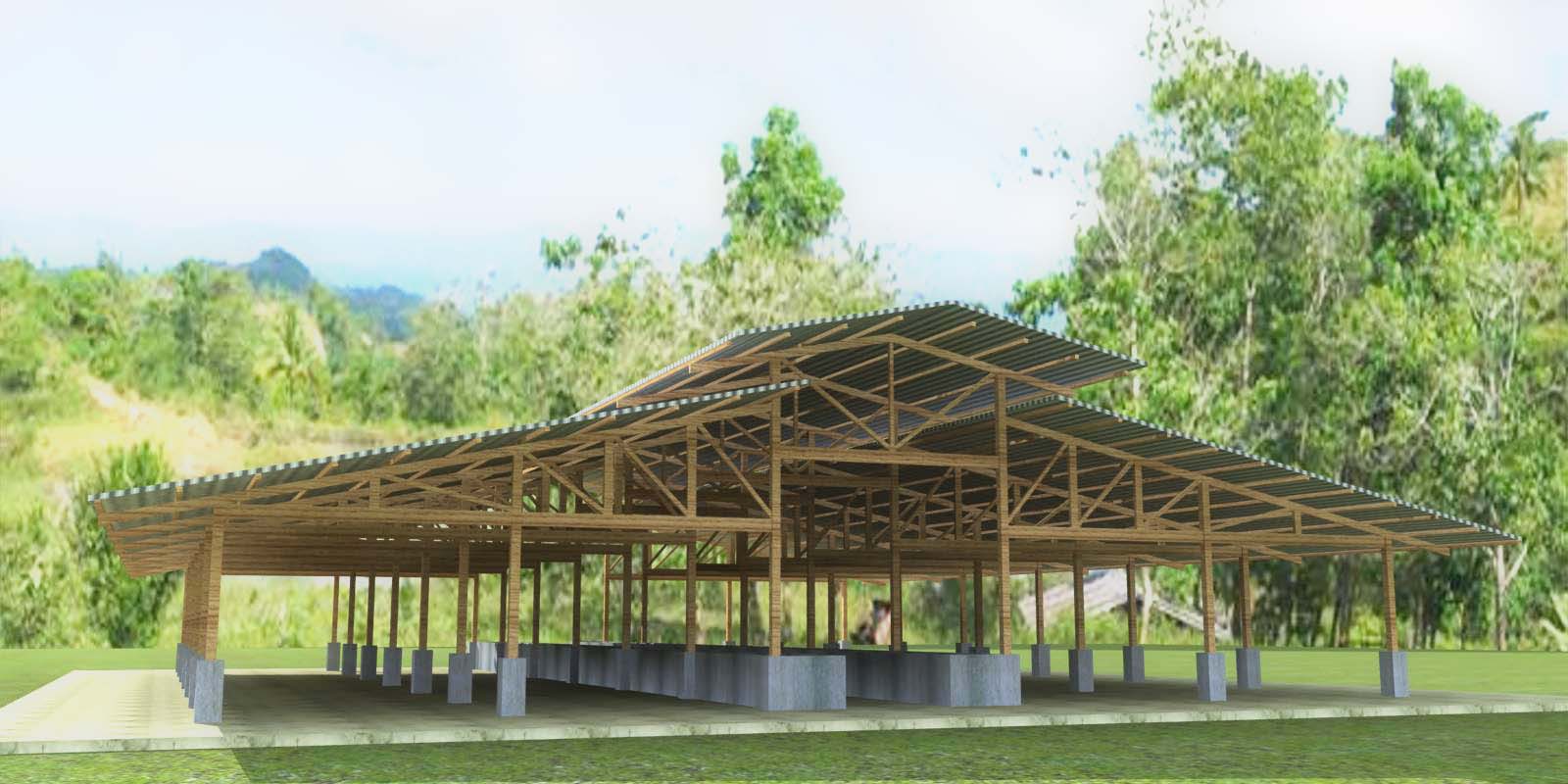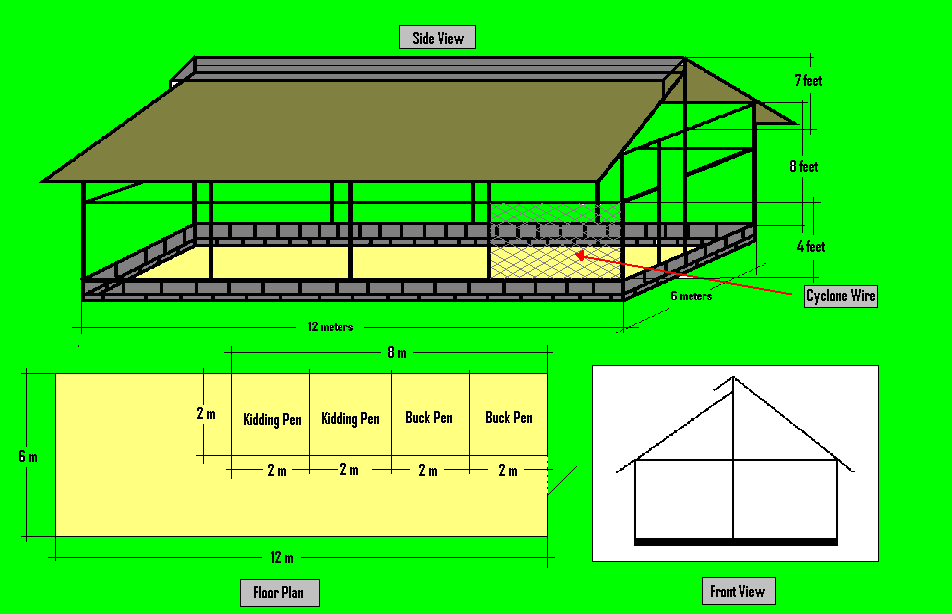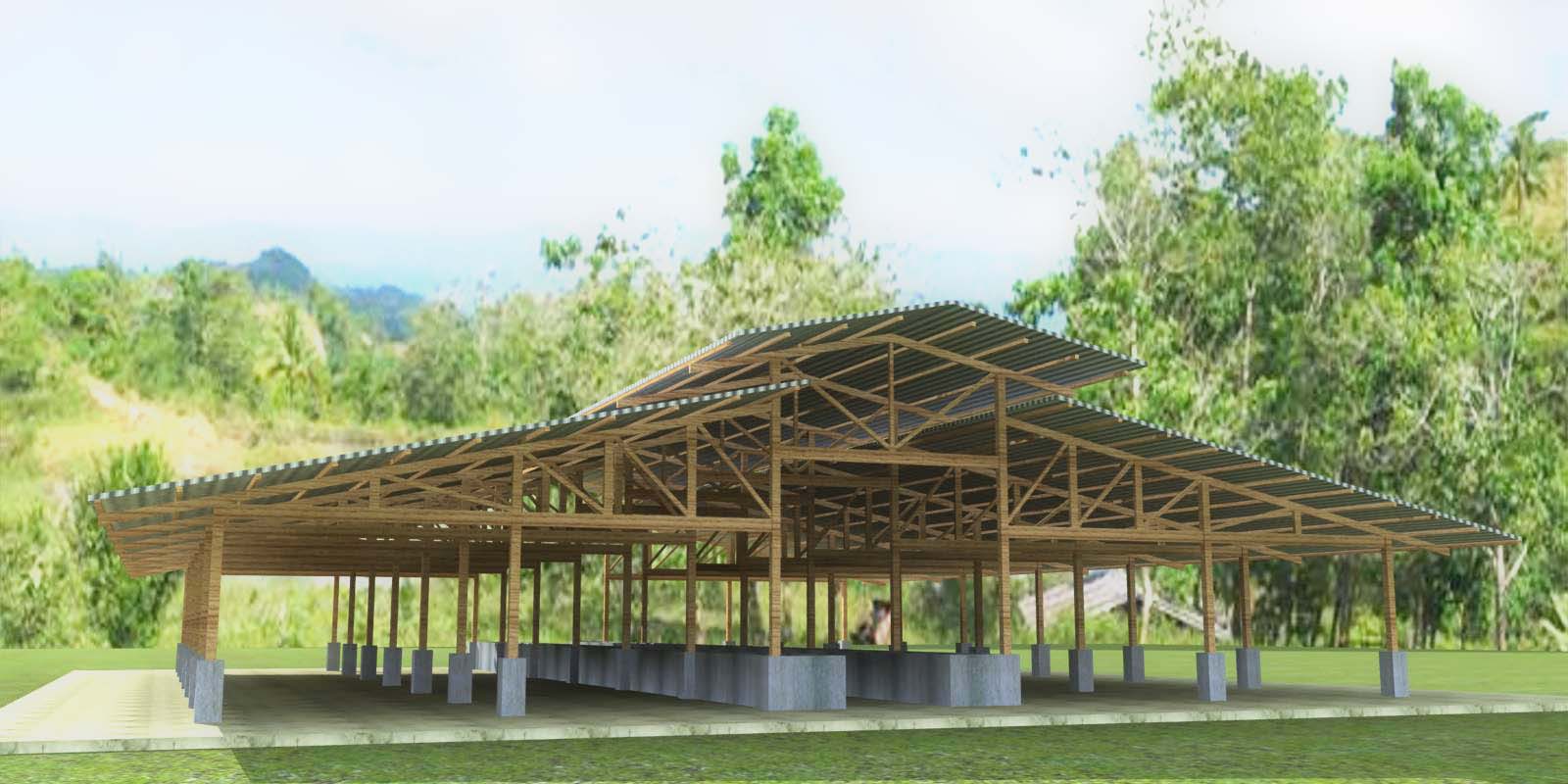Cattle Housing Plans Click here for entire list of blueprints Number Date Pages Description 5074 1933 1 Ear Corn Self Feeder 5763 1 Movable Calf Creep Feeder 5764 1 Movable Calf Creep Feeder 5768 1952 1 Calf Creep Feeder 5776 1953 1 Movable Self Feeder For Cattle 5844 1957 1 Weathervane Mineral Feeder 5854 1958 1 Fence Line Feeder
Plans for a 48 X 38 pole barn with one end open More than half the structure is for hay storage The rest is an open area for cattle Confinement Beef Barn 88 X 108 A five page plan to build a 108 X 88 confinement barn for cattle Confinement Beef Barn 44 X 120 Plans for a large confinement barn with bunk feeders for beef cattle Some Recommended Structures for Beef Cattle Housing Open sided single slope roof shed This type of housing is most typical of structures used and is suitable for all cattle on the farm This is the least expensive of new structures and very easy to build Open sheds should face the south for winter sun and block the prevailing winds
Cattle Housing Plans

Cattle Housing Plans
https://i.pinimg.com/originals/ce/2c/92/ce2c927659f31a0a030752aa816b18c5.jpg

Design Of A Piggery House Modern Design
https://4.bp.blogspot.com/-ZuJ3IfkXzIw/T_tpjxdrO-I/AAAAAAAAAUY/iTTtvAva0co/s1600/CATTLE+HOUSE.jpg

Livestock Kenya Recommended Zero Grazing Housing Plan How To Plan Cattle Housing Cow Shed
https://i.pinimg.com/originals/b8/72/f5/b872f519d88fa6ec5d4a33de6ca77e42.jpg
Take the panels back out and pound six metal stakes into the wooden base two in the middle and one for each corner Everything inside the greenhouse should fit flush against the wooden base including stakes and cattle panels Cover the heads of each stake with copious amounts of duct tape wrapped around a couple of pieces of foam insulation Calf Housing Hutches Calves can be raised in individual hutches that afford them the opportunity to move around be fed individually and allow for good ventilation and ease of cleaning The key is to have the hutches placed about 2 feet apart to avoid contact spread of disease
Low Cost Housing and Feeding Facilities for Lactating Cows DAIReXNET August 16 2019 by dairy cattle Low Cost Housing and Feeding Facilities for Lactating Cows Contents 1 Introduction 2 Feeding Facilities 3 Self Feeding Systems 3 1 Self Feeding Hay 3 2 Self Feeding Silage 4 Portable Feeding Systems 4 1 Fence Line Feeding Some Recommended Structures for Beef Cattle Housing Open sided single slope roof shed This type of housing is most typical of structures used and is suitable for all cattle on the farm This is the least expensive of new structures and very easy to build Open sheds should face the south for winter sun and block the prevailing winds
More picture related to Cattle Housing Plans

Pin On House Plans
https://i.pinimg.com/originals/41/0f/7a/410f7a3ef66dde0415414cbeb7165309.png

Livestock Barn Plans And Designs Minimalist Home Design Ideas
https://i.ytimg.com/vi/dmukHUEUvKc/maxresdefault.jpg

Richard s Cattle Barn Morton Buildings Cattle Housing Cattle Farming Cattle Ranching Goat
https://i.pinimg.com/originals/e4/89/9a/e4899af78734e652b231cc48a4700c68.jpg
Beef Lamb Tags cattle housing livestock building design flooring lighting cubicles ventilation Improving existing cattle buildings or designing new builds to best standards has a lasting and positive impact on animal health and productivity 1 Different Types of Livestock Shelters There are various types of livestock shelters that can be built for your animals Before you decide on a shelter think about the environment and location where it will reside You should also consider what kind of animal will live there to ensure they are comfortable inside their new home
PLAN BULL PEN DETAILS 16 X50 W 10 X16 ShR BARN FENCE DET CATTLE GUARD 10 WIDE STEEL CONCRETE CONST CATTLE BARN POLE CONST BULL PEN 12X18 GbR BARN CB CF CONCRETE POSTS PEN DET CATTLE SELF FEEDER 6 X8 X8 GbR 80 BU ON 4 WH LS CATTLE SQUEEZE 4 X8 CHUTE W 3 HEADGATE TYPES WOOD CONST 6 CORRALS FOR BEEF CATTLE HDGATE Well designed and properly maintained freestalls are a key component in a freestall housing system Figure 1 Space requirements for resting and rising dairy cow Providing a dry comfortable resting area for dairy cattle is essential to their health well being and performance Cows typically rest 10 to 14 hours per day in five or more resting

Detail Shed Design For Goat Farming Samuel
https://3.bp.blogspot.com/-3iYfIXosfHc/Uh9yo0Q_KSI/AAAAAAAAFLs/qdd4bu4pcYg/s1600/Goat-House-Plan.gif

Cooow
https://i.pinimg.com/736x/51/ab/0c/51ab0cbdc9592404574cc58c83efaf02.jpg

https://extension.colostate.edu/publications-2/blueprints-and-housingequipment-plans/blueprints-livestock-feeding-and-housing-plans/
Click here for entire list of blueprints Number Date Pages Description 5074 1933 1 Ear Corn Self Feeder 5763 1 Movable Calf Creep Feeder 5764 1 Movable Calf Creep Feeder 5768 1952 1 Calf Creep Feeder 5776 1953 1 Movable Self Feeder For Cattle 5844 1957 1 Weathervane Mineral Feeder 5854 1958 1 Fence Line Feeder

https://www.lsuagcenter.com/portals/our_offices/departments/biological-ag-engineering/extension/building_plans/cattle/housing
Plans for a 48 X 38 pole barn with one end open More than half the structure is for hay storage The rest is an open area for cattle Confinement Beef Barn 88 X 108 A five page plan to build a 108 X 88 confinement barn for cattle Confinement Beef Barn 44 X 120 Plans for a large confinement barn with bunk feeders for beef cattle

Cow Shed Design And Construction Livestock Info

Detail Shed Design For Goat Farming Samuel

Cattle Housing Cattle Farming Agriculture Farming Livestock Cow Shed Design Shed Design

Cattle Building Design And Layout Brideandgroomindianweddingoutfitsaree

How To Design A Cattle Shed Design Talk

Floor Plan Livestock Barn Designs Livestock Cattle

Floor Plan Livestock Barn Designs Livestock Cattle

Dairy Farm Business Plan In Bangladesh Pdf Leah Beachum s Template

Cow Building Google Search Cattle Barn Barn Plans Cattle Housing

Maternity Barn For Dairy Cows
Cattle Housing Plans - Call us today You will see how our facilities are providing a viable alternative to conventional cow calf production Our cow calf confinement facilities are available as bed pack only Want to tour a facility CALL 402 563 6041 Cattle Backgrounding Finishing with a Bed Pack Facility